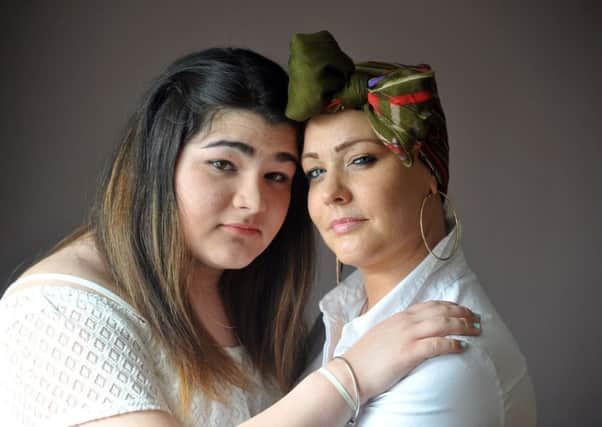Stem cell transplant for Leeds leukaemia mum using umbilical cord blood


Vanessa Myers, from Leeds, desperately needs the transplant to save her life and though doctors have been checking globally, no compatible donor has been found.
The mum-of-one is now to have the procedure next month using donated umbilical cord blood, which is rich in stem cells.
Advertisement
Hide AdAdvertisement
Hide AdIt is not a perfect match – but medics have warned her she must have the treatment as soon as possible.
“It’s second best,” she said.
“Because the illness is so fast and aggressive, we have not got time to wait.”
Ms Myers, from Kirkstall, was diagnosed with leukaemia last year after being unwell for some time.
Eventually the 30-year-old became so poorly that she was sent straight to hospital where she was given the devastating news that she had acute myeloid leukaemia, a fast growing and aggressive type of the blood cancer.
Advertisement
Hide AdAdvertisement
Hide AdHer condition meant that she needed to start treatment the day after diagnosis, but the chemotherapy has caused severe allergic reactions and illnesses, including sepsis and double pneumonia, which she has had twice.
Doctors said the next stage of treatment was a bone marrow transplant but Ms Myers is of mixed race Asian background and has an unusual chromosome, making it difficult to find a match.
Last month the Yorkshire Post reported on her plea for people to sign up to the bone marrow registers, especially those from mixed race backgrounds.
The mother to 14-year-old Aliyah said: “This could save my daughter from losing her mother. I am in desperate need.
Advertisement
Hide AdAdvertisement
Hide Ad“And if you sign up, you might be able to save someone else’s brother, sister or mother.”
There is a nationwide shortage of donors from black and minority ethnic heritage and the search for a 99 per cent or 100 per cent match has drawn a blank.
So medics now plan to go ahead with the transplant using stem cells from donated umbilical cord blood, which comes from the placenta and umbilical cord after a baby is born.
It is rich in stem cells, which can help to cure many life-threatening diseases by restoring the function of the patient’s immune and blood-producing systems.
Advertisement
Hide AdAdvertisement
Hide AdNormally the placenta and umbilical cord are thrown away, but mothers can agree in advance to donate it and can do so at 10 specialist hospitals in the UK.
Transplants using umbilical cord blood are an alternative to using bone marrow.
Blood from two different umbilical cords has been mixed to create the best possible match for Ms Myers.
However it means that if the transplant works but Ms Myers later relapses, she will not be able to have another transplant using the same donor as she would if it was from one person.
Advertisement
Hide AdAdvertisement
Hide Ad“This is going to be my last go, whatever happens,” she said.
The procedure was supposed to take place in Leeds this month but was delayed because of an infection, so is now planned for June.
Ms Myers will undergo gruelling radiotherapy and chemotherapy together before the transplant.
“Then it’s just a waiting game. I should find out within 100 days afterwards,” she said.
Advertisement
Hide AdAdvertisement
Hide Ad“It will all probably take two or three months and I will be in and out of hospital with infections.
“After that we will find out if it’s grafted to my body.”
She said she had been feeling better due to the break in treatment, but was now keen to have the next procedure.
“I just want to get it over and done with now,” she said.
“I want to raise awareness of donating cord blood. There are a lot of people out there like me who can’t find matches.”
* For information, visit www.nhsbt.nhs.uk/cordblood or www.nhsbt.nhs.uk/bonemarrow.